Construction projects involve many moving parts. From scheduling and budgeting to communication and documentation, staying organized is key to avoiding delays and cost overruns. Construction management software helps contractors, builders, and trades professionals streamline operations, reduce risk, and improve visibility across every job.
Compare popular platforms like QuickBooks, monday.com, Smartsheet, Wrike, Zoho Projects, and Pipedrive to find the right construction software for your small or mid-sized business.
What is construction management software?
Construction management software helps teams plan, track, and execute projects from initial quote to completion. It replaces spreadsheets, paper plans, and scattered emails with a centralized system for managing:
-
Scheduling and task assignments
-
Document and drawing management
-
Job costing and budgeting
-
Team collaboration and communication
-
Customer and subcontractor updates
While many tools on the market are not construction-specific, platforms like monday.com, Smartsheet, and Wrike are widely used by contractors who want to digitize their workflows and improve efficiency.
QuickBooks handles the financial side of the operation. Pipedrive supports sales and pre-construction follow-ups. When used together or alongside industry-specific tools, these platforms can create a complete project management ecosystem for small construction businesses.
Who is it for?
Most users comparing software on Sonary are small to mid-sized businesses with fewer than 20 employees. These tools serve a wide range of construction-related roles:
-
Business owners need visibility into project status, costs, and profitability
-
Project managers assign tasks, manage subcontractors, and track schedules
-
Field crews and subcontractors need mobile access to plans and updates
-
Clients want transparency and live updates on project progress
Industries that commonly benefit from construction management software include:
-
Homebuilders and remodelers
-
General contractors
-
Electricians, plumbers, and HVAC companies
-
Design-build firms
-
Low-voltage and specialty trade contractors
Key features to compare
When evaluating project management software for construction use, focus on these core capabilities:
1. Task and Project Scheduling
Create job timelines, assign responsibilities, and update progress in real time.
2. Document and Drawing Management
Share plans, specs, and permits with internal and external teams. Ensure everyone works off the latest version.
3. Budget Tracking and Job Costing
Compare actual expenses to planned budgets. Track labor, materials, and overhead.
4. Team and Client Collaboration
Enable easy updates between crews, office staff, and customers. Avoid miscommunication and delays.
5. Mobile Access and Field Usability
Allow field teams to access project data from smartphones or tablets on-site.
6. Reporting and Custom Dashboards
Generate reports that show project status, profitability, and resource utilization.
Construction software comparison: Best fit by platform
Each of the six tools in this guide brings specific strengths to the table. Here is how they stack up for small construction businesses:
QuickBooks
Best for: Job costing, invoicing, and financial management
QuickBooks is widely used by contractors to manage the accounting side of the business. You can track expenses by project, run payroll, and integrate with time-tracking tools. Many construction firms pair QuickBooks with monday.com or JobTread to manage operations while handling finances in QuickBooks.
- Strengths: Robust financial tools, job costing, payroll
- Limitations: No built-in project or task management
- Starting cost: Around $100/month
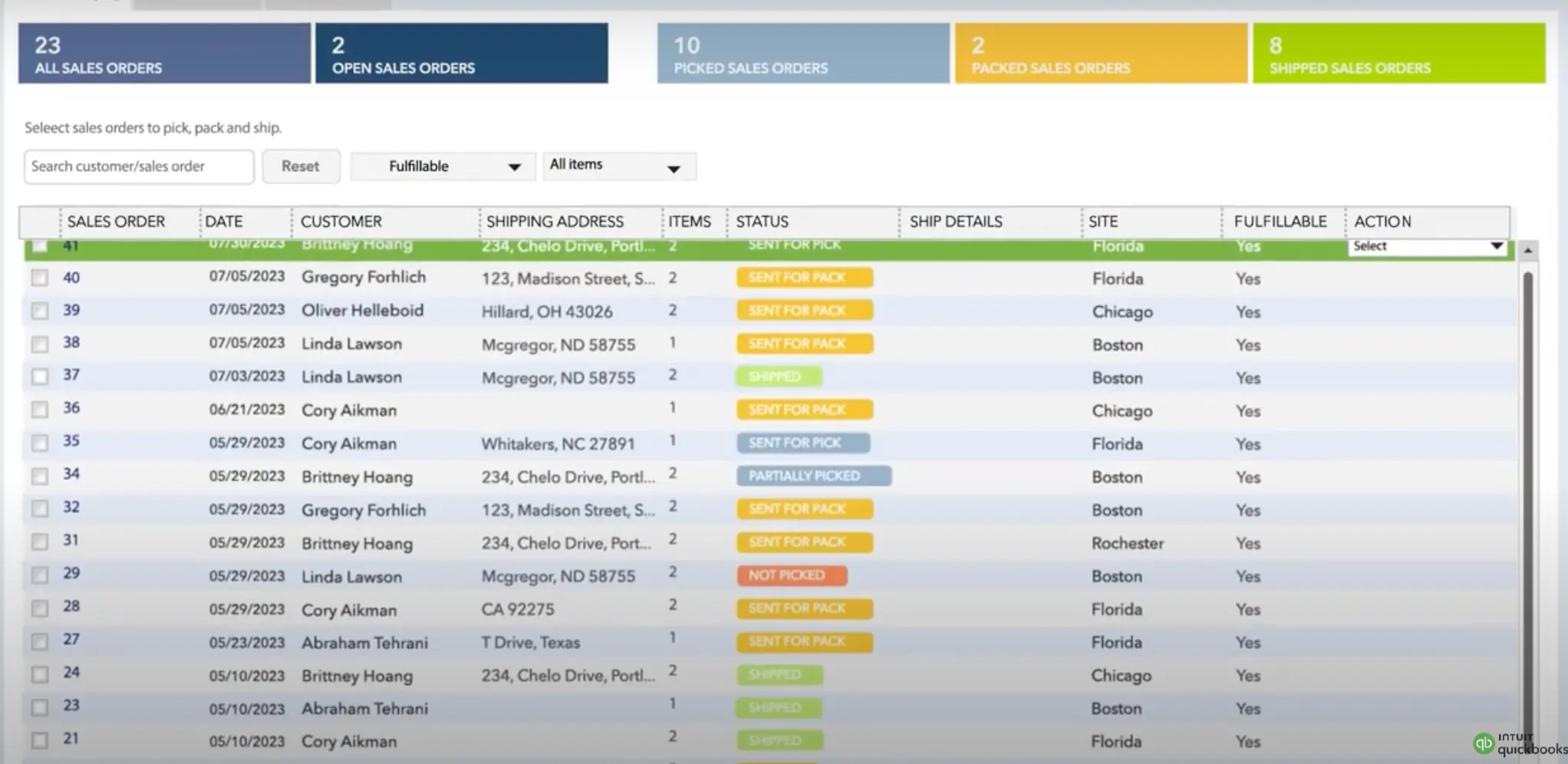
monday.com
Best for: Custom workflows and task scheduling
monday.com lets you build your own boards for job tracking, crew assignments, material schedules, and more. It is flexible and visual, making it easy to set up construction-specific workflows without coding or advanced setup.
- Strengths: Flexible task boards, automations, and mobile-friendly
- Limitations: Requires setup, no native construction templates
- Starting cost: Around $180/month for 3 users
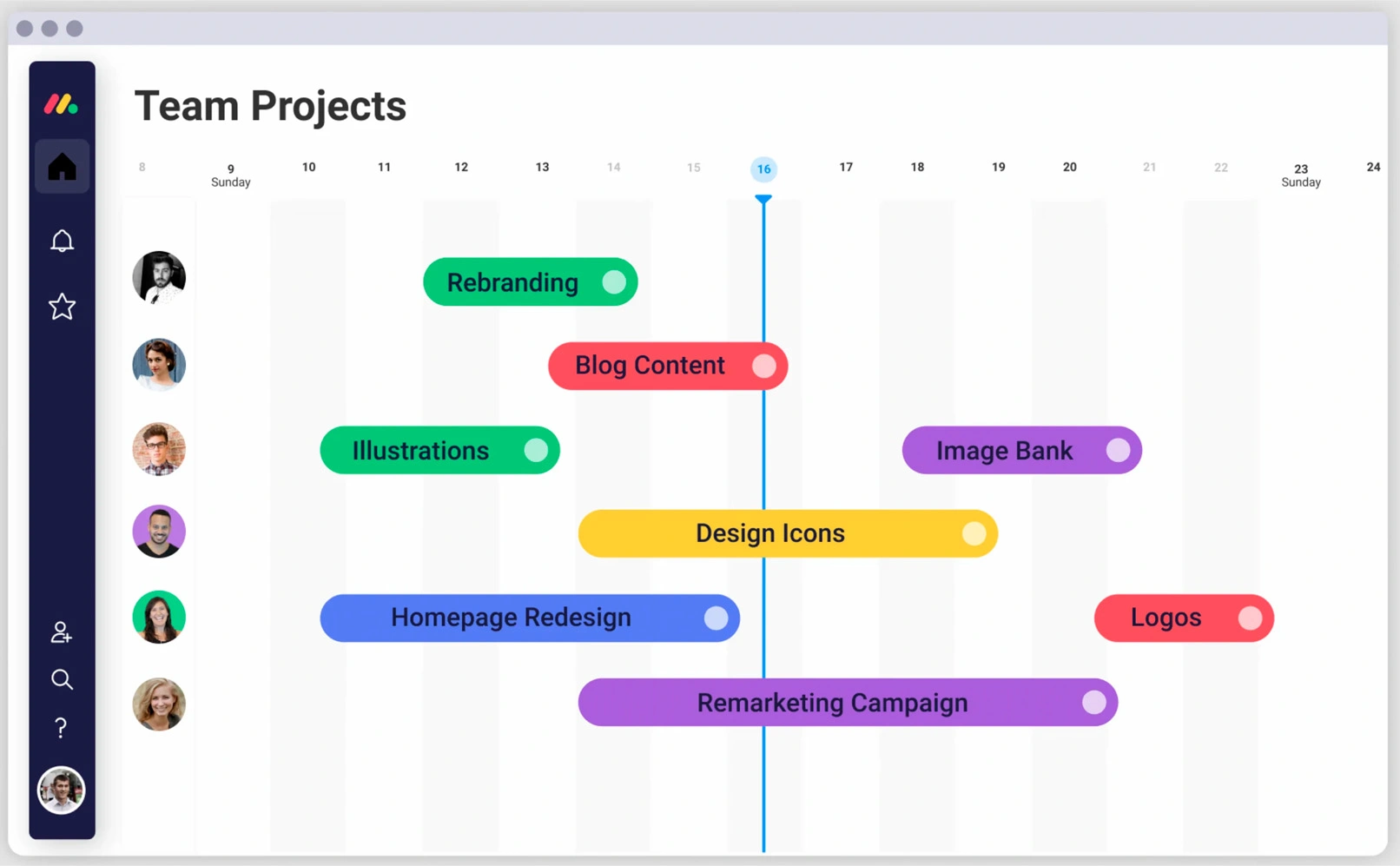
Smartsheet
Best for: Spreadsheet-based project planning
If you are currently managing projects in Excel, Smartsheet offers a more powerful alternative with real-time collaboration and automation. It is ideal for tracking budgets, timelines, inspections, and subcontractor milestones.
- Strengths: Gantt charts, forms, dashboards, Excel-like interface
- Limitations: Steeper learning curve, less field-friendly
- Starting cost: Around $300/month
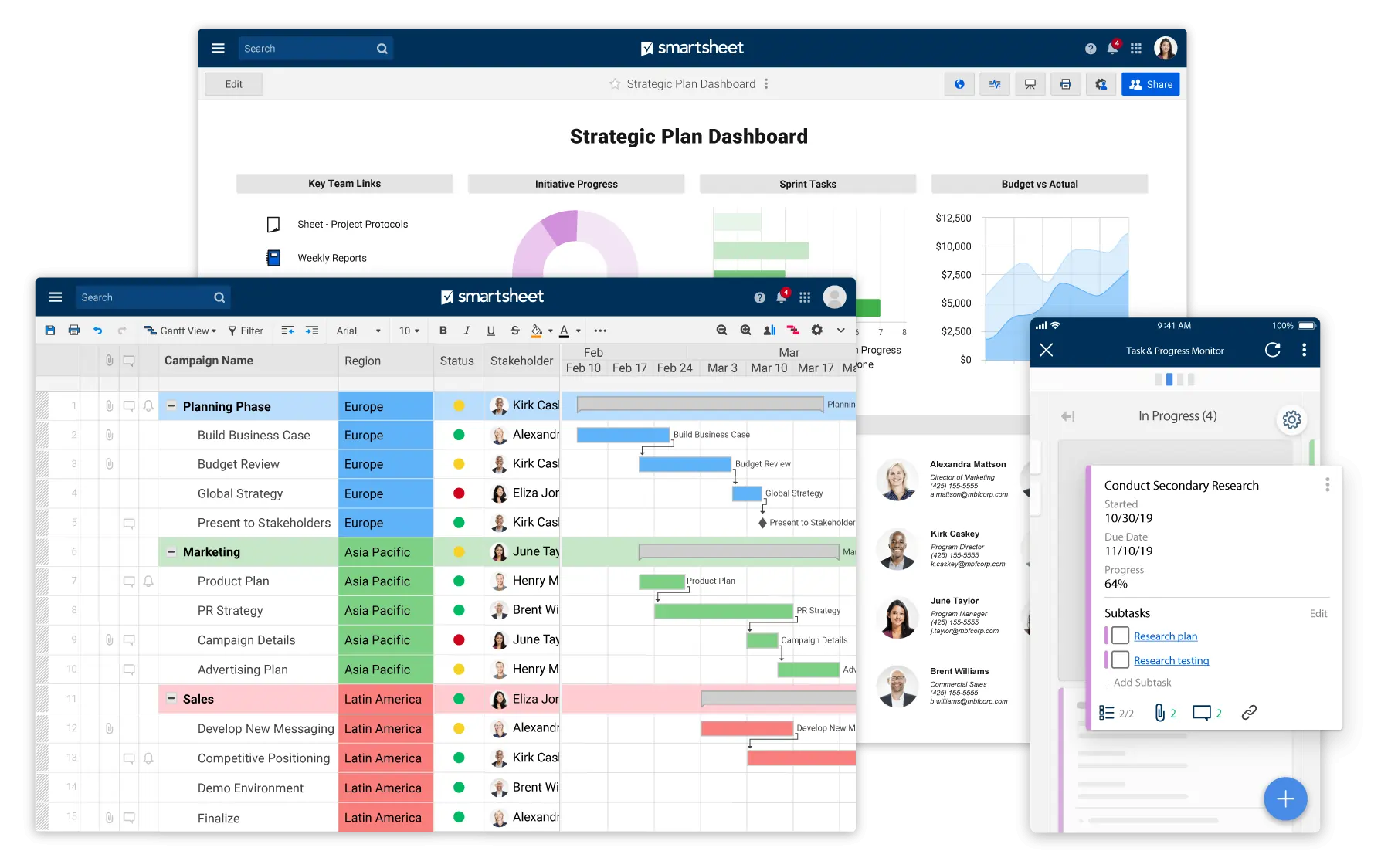
Wrike
Best for: Cross-team collaboration
Wrike is well-suited for companies that manage design, permitting, and fieldwork across multiple departments. It allows users to easily track files, due dates, and time logs. It is also useful for document-heavy jobs.
- Strengths: Task dependencies, document sharing, time tracking
- Limitations: No estimating or budgeting tools
- Starting cost: Around $360/month for 5 users
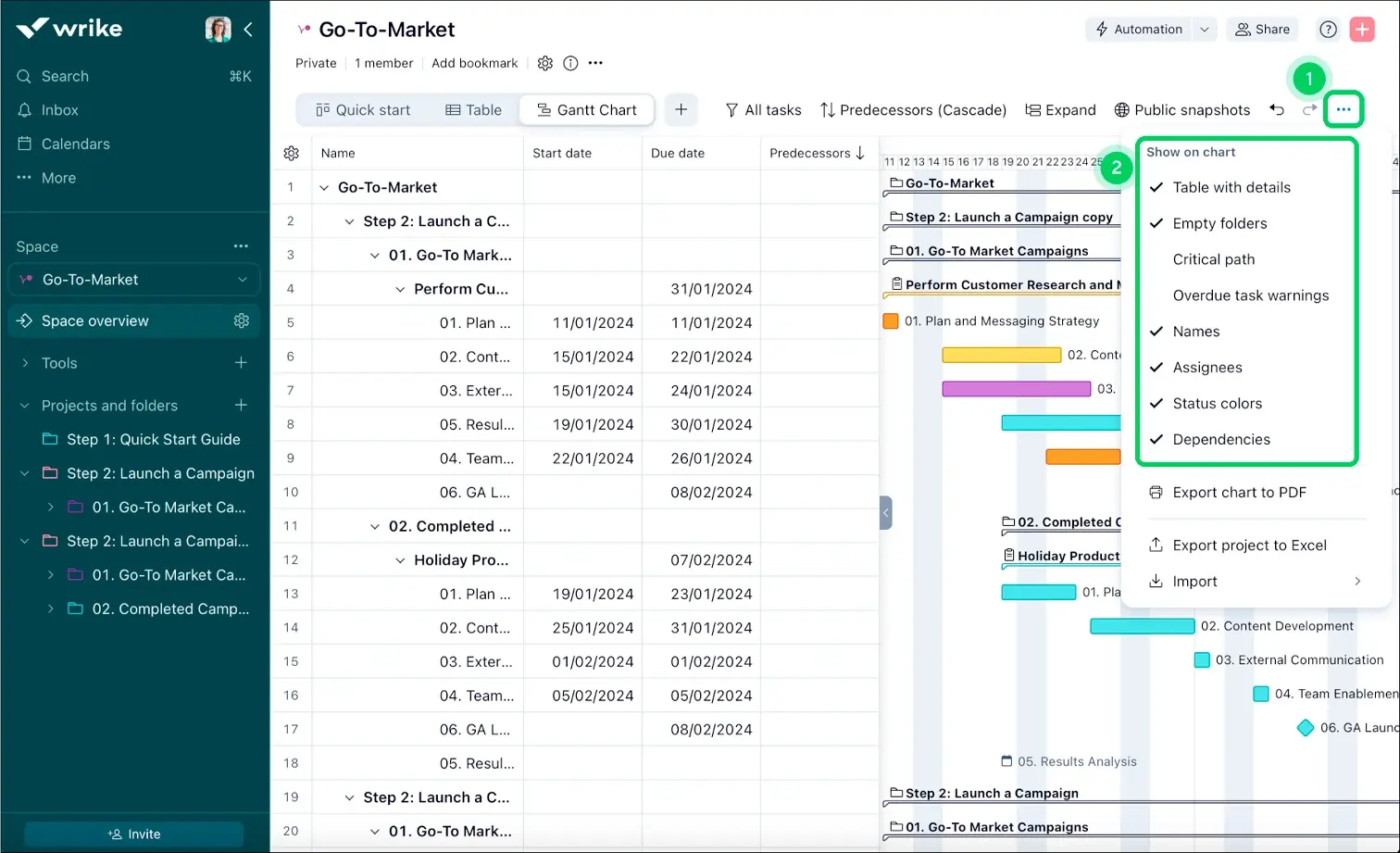
Zoho Projects
Best for: Budget-conscious startups
Zoho Projects is an affordable entry point for small businesses that need basic project tracking. You get time logging, Gantt charts, and task dependencies at a very low price. It is a substantial upgrade from spreadsheets for teams just getting started.
- Strengths: Price, task tracking, integrations with Zoho ecosystem
- Limitations: Less powerful mobile experience, not construction-focused
- Starting cost: Around $50/month for 10 users
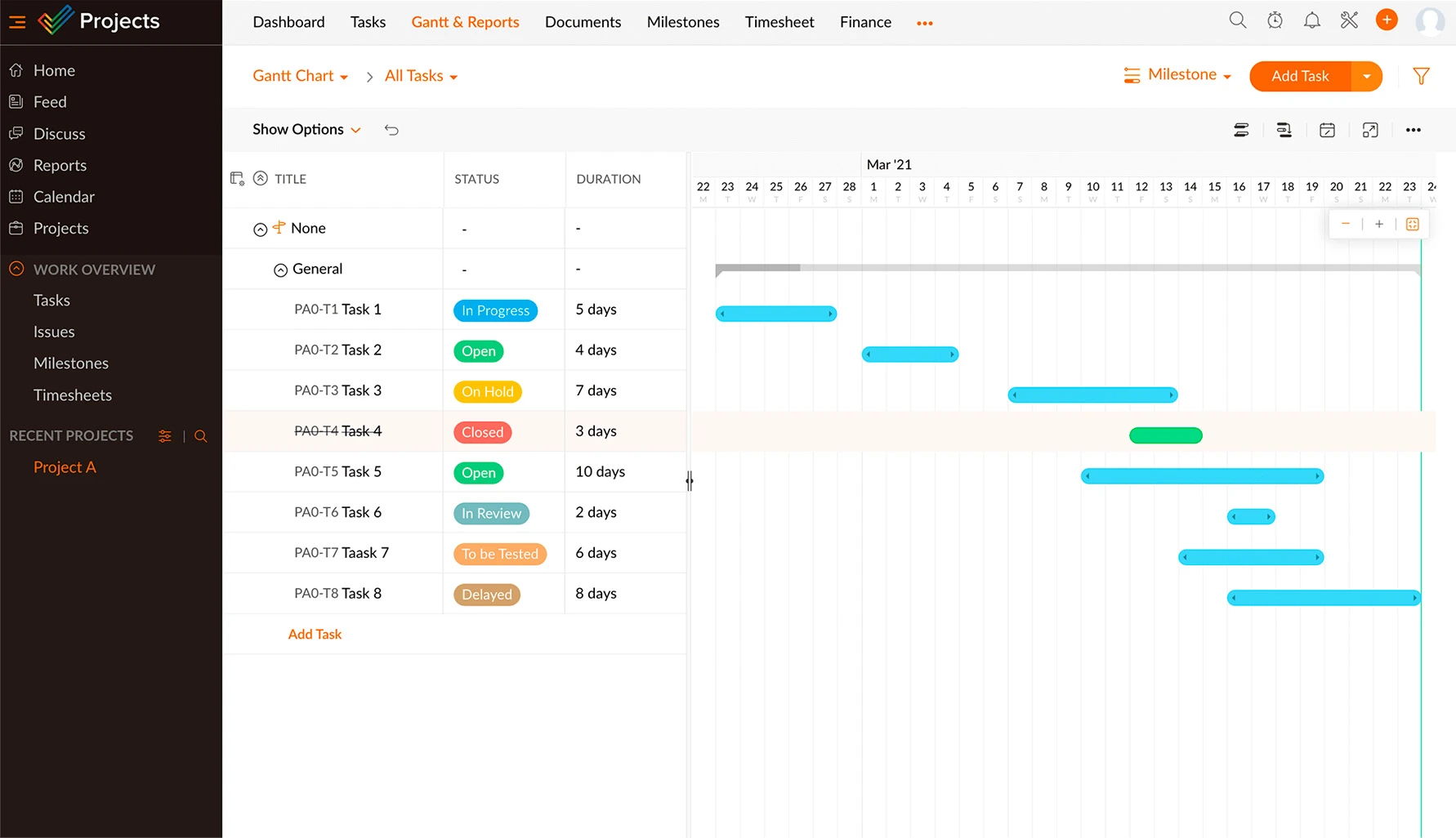
Pipedrive
Best for: Managing leads and sales pipelines
Pipedrive is a CRM tool that helps design-build firms and remodelers keep track of incoming leads, quotes, and client communication before a job begins. It is not a project manager, but it works well alongside tools like QuickBooks and monday.com.
- Strengths: Sales tracking, email integration, custom pipelines
- Limitations: No job tracking or task scheduling
- Starting cost: Around $25–$90/month
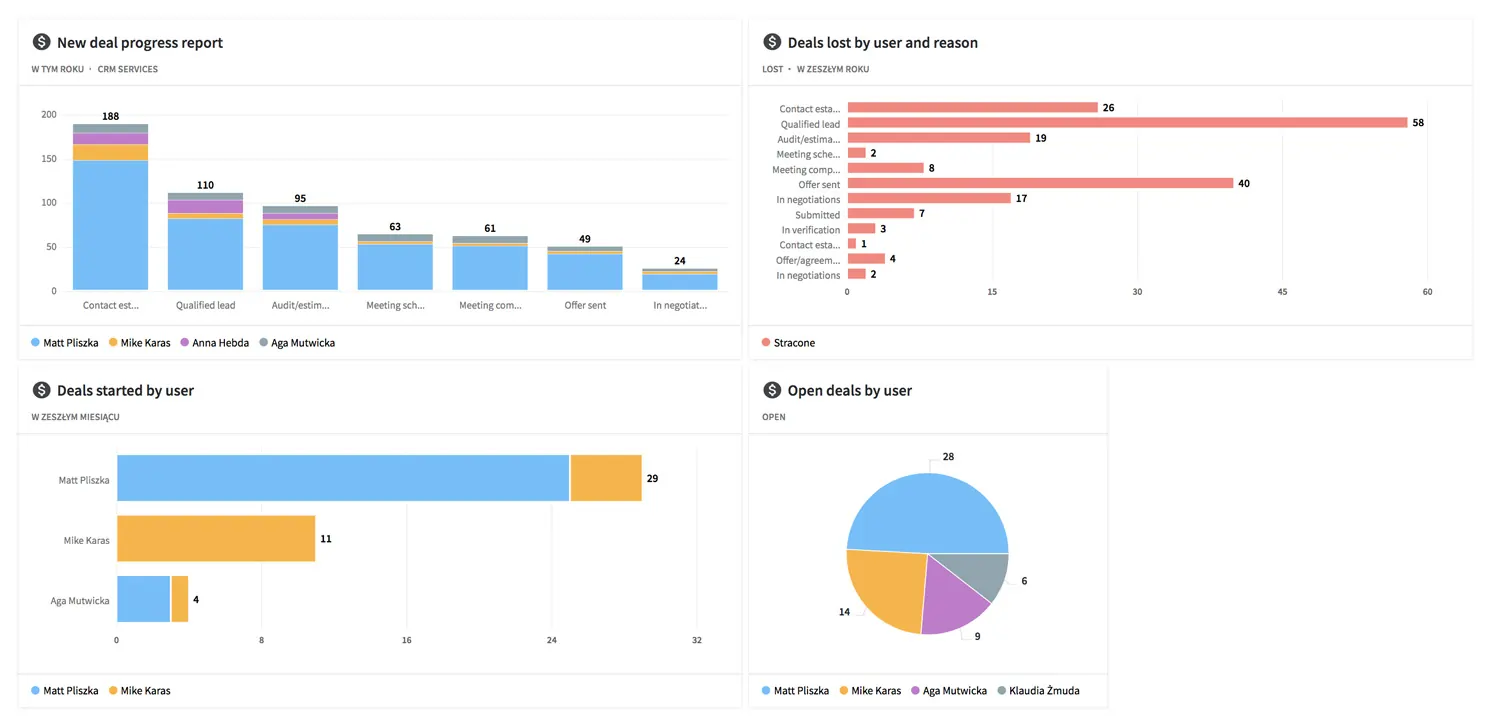
How much does construction software cost?
Here is a general breakdown of pricing based on business size and needs:
| Tier |
Monthly Cost |
Suitable For |
| Entry-Level |
$100–$300 |
Solo contractors or startups using Zoho Projects, QuickBooks, or Pipedrive |
| Mid-Tier |
$350–$800 |
Small teams using monday.com, Smartsheet, or Wrike |
| Premium |
$1,000+ |
Growing firms use multiple tools with integrations and advanced reporting |
Hidden costs to watch for:
-
Onboarding and training services
-
Add-ons for integrations or API access
-
Upcharges for mobile or offline access
-
Price increases under SaaS subscription models
Buyer checklist: questions to ask before you buy
Before choosing a platform, ask these key questions to ensure it aligns with your needs:
-
Can my field crew access and update schedules and files on mobile devices?
-
Does the platform integrate with QuickBooks or my payroll software?
-
How does pricing scale with more users or projects?
-
Are training and support included, or billed separately?
-
Is it easy to customize forms, reports, or dashboards?
-
Does it include offline access for field use?
-
How is my data stored, and can I export it if I switch platforms?
-
Does the vendor offer a free trial or live demo?
-
Can clients view project updates or submit requests?
-
How steep is the learning curve for field staff?
FAQ: construction management software
What is the best construction management software for small businesses?
There is no one-size-fits-all answer. monday.com is great for flexible task management. QuickBooks handles finances and job costing. Zoho Projects is ideal for startups on a budget. Smartsheet and Wrike work well for structured planning and cross-team collaboration.
Do I need a construction-specific platform like Buildertrend or Procore?
If you need blueprint markup, RFIs, submittals, or compliance features, yes. But many small businesses can successfully run projects using general tools like monday.com or Smartsheet – especially when paired with financial or CRM tools.
Can I manage multiple projects at once?
Yes, all tools listed here support multi-project management. monday.com, Smartsheet, and Wrike are particularly strong for tracking several jobs simultaneously.
What integrations should I look for?
Popular integrations include QuickBooks, Google Drive, Slack, Dropbox, and Microsoft 365. If you rely on estimating, CRM, or payroll tools, make sure your platform can connect with them.
Is mobile access important?
Yes, especially for field crews. If job sites have limited connectivity, choose platforms with a responsive mobile app and offline capabilities.
How long does it take to get set up?
Setup can range from a few hours to several weeks depending on the platform and level of customization. Tools like Zoho Projects and Pipedrive are easy to start. monday.com and Smartsheet may require more configuration.
Final thoughts
Construction management software helps small and growing contractors stay organized, communicate better, and reduce risk across every project phase. While tools like QuickBooks and Pipedrive focus on finances and sales, platforms like monday.com, Smartsheet, Wrike, and Zoho Projects help coordinate the daily details that drive job success.
The best approach is to choose a tool that first solves your most urgent problem – whether managing tasks, controlling costs, or following up with leads – and expand your tech stack as your business grows.
Need help comparing tools? Use Sonary to explore reviews, feature breakdowns, and side-by-side comparisons tailored to your industry and team size.















